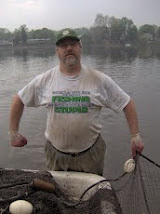FRACTURED
LIVES
When we
planned our trip to Croatia last summer, we visited a country that did not
exist when I was last in the area in the 1980s. It was called Yugoslavia then,
which was a mashup of different ethnicities and republics all thrust together
at the end of WWI. With the iron rule of Marshall Tito this worked well for a
while. The country was kept from the full sway of communism and all those
ethnicities were forced to cohabitate. But after
Tito’s death in 1980 and the subsequent fall of Communism, Yugoslavia began to
fracture as each of the republics sought independence.
Land
grabs ensued and the horrors of ethnic cleansing devastated Bosnia I
Herzegovina. Many people died, and many worlds were destroyed. As Yugoslavia
shuddered through the conflagration and the world shrugged her shoulders at
what was perceived as ancient idiotic Hatfield v McCoy blood feuds, my friends
from Sarajevo fled the city. Other friends were abroad when the insanity began
and were unable to return to Sarajevo for years.
No one
was without fault. Atrocities were committed on both sides. The Croats shelled
Stari Most in Mostar and the Bosnians shelled Dubrovnik, both with no military
value. It was madness and though the former republics of Yugoslavia, from
Slovenia to Macedonia, seem to have recovered well enough, scars are still
visible. Buildings near the border with Bosnia still have bullet holes, some
walls in Dubrovnik remain scoured by ordinance shrapnel, one is warned not to
venture off into Bosnian fields because of the still imminent threat of land
mines.
SHARDS OF A FORMER LIFE
It has
been over 20 years since the siege of Sarajevo was ended after Bill Clinton
finally put down his saxophone and cigar to broker the Dayton Peace Accords and
though that ended the hostilities, it froze the ethnic divisions in place and
today Bosnia remains one country with two entities. There is the Federation of
Bosnia I Herzegovina mainly populated by Bosniak (Muslims) and Croats
(Catholic) and then there is the Republika Srpska which is Serbian (Orthodox). Other
countries from the former Yugoslavia, like Slovenia and Croatia are excelling
economically, but Bosnia is still mired in a morass of ethnic maneuvering. Currently
they are not in the European Union and unemployment in Bosnia is the
consistently the highest in the Balkans.
RICK
STEVES
Janet
swears by Rick Steves and his traveling guide books and we bought one for the
trip. He is a great and very reliable source of ideas and logistics for
traveling. Considered the foremost authority on European travel, he also has a
television series on PBS.
Several
times throughout the Croatia / Slovenia guidebook Steves mentions the war in
Croatia and the complicated situation in Bosnia. He also says one should not
bring up the War of Independence in conversation with the Croats. Inconvenient
truths need not enter into the frivolity of the day. Croatia certainly has
distanced herself from this conflict and as guests of this land of smiling
faces and rugged landscapes and sun-splashed waters, Balkan meats and cheeses,
and lovely wines, why get everyone riled up?
MY
SARAJEVO
The
Sarajevo I knew during the Olympics no longer exists. It may put up a brave
front of a cosmopolitan city for the world to see, but nationalism,
mismanagement and corruption swirls among the citizens to this day. Once, Sarajevo was truly a cosmopolitan city of Muslims, Jews, Catholics, Croats and Serbs and Bosniaks all living together in a city that was beautiful and enlightened enough to host the XIV Olympic Winter Games. Her culture and vibrancy were there on display for the world to see and her people were proud. I also heard more than once that Sarajevo was not like the rest of Yugoslavia and that she was a unique jewel.
During
and after the war many Sarajevans fled and many have never returned. Today
roughly 80% of the population of Sarajevo are Bosniaks (Bosnian Muslim), with
much lesser pre-war populations of Serbs and Croats.
PARTYING
LIKE IT’S 1984
Why, you
may ask fair reader, I am going on about a place I haven’t been to since the
1980s and did not even visit when we were in Croatia this past summer? Boring
right?
Well part
of this glorious trip to Croatia last summer was to reconnect with friends from
Sarajevo. After 35 years of being apart
we stayed with them at their summer house in Trpanj on the Peljesac peninsula.
Throughout the week we watched hilarious home movies of our time with ABC
Television, drank wine and bourbon, swam and boated on the Adriatic, drove
around the countryside and drank coffee every day at Café Zalo. Life was good
and serene and the final week of our visit to this part of the world made this
trip very special. We saw Croatia like tourists and Croatians.
 |
| Zeljko and Hana's deck |
It was
also interspersed with tales from the war. From their balcony overlooking the
Adriatic, a beautiful place, Zeljko and Hana told us several harrowing tales of
the siege of Sarajevo. It was the longest siege in modern warfare. From April
1992 until February 1996, the citizens of Sarajevo endured mortar shelling and
sniper attacks which killed thousands. A former soccer pitch was used as a
cemetery.
Zeljko
and Hana no longer live in Sarajevo, Bosnia, having fled the city during the
war. Eventually they settled in Zagreb, Croatia and now call themselves
Croatian. They encountered lots of prejudice in the years after the war. Because
he is of Catholic heritage, he had to defend his marriage to his Muslim
heritage wife, Hana. He was pressed repeatedly about this and told he should divorce
Hana. She was not allowed to work for a decade.
They fled
the city with little more than the clothes on their back, escaping through a
tunnel near the airport. Later Zeljko was part of team of notable Sarajevan people
that helped arrange the safe passage of several busloads of children out of the
war choked city. He even told us how there was a dry run for the siege about a
year before when troops were blocking access points into Sarajevo. He was
trying to return after a film shoot and was told he couldn’t get in, for “safety
purposes.” He said that they were testing to see if such a siege was feasible a
year before the conflagration.
Our jaws
would drop with each tale, but Zeljko and Hana would smile their warm easy smiles
and say it’s okay. It’s over. Several other home owners along the road were
also from Sarajevo. There was a Serb family, a German family too, but there seemed
to be a special bond amongst those from Sarajevo. They were proud of their city
no matter where they live now, no matter how it has changed with the madness
© 2019 by Greg Dunaj




































No comments:
Post a Comment